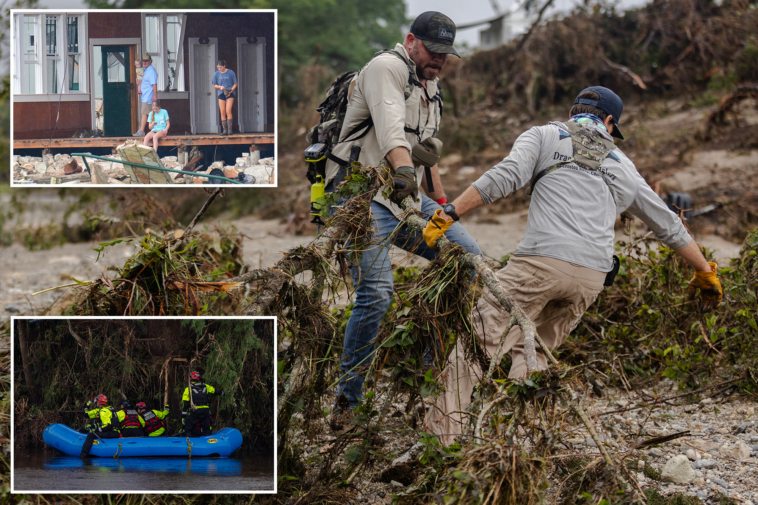Officials in Kerr County, Texas — where 27 campers and counselors at a Christian summer camp were killed in catastrophic flooding — had discussed installing a flood warning system along the banks of the Guadalupe River, known as “Flash Flood Alley,” but it was rejected as too expensive.
Kerr County, home to around 50,000 people, had looked into installing sirens, river gauges and other modern communication tools along the waterway in 2017, but ultimately decided against it, the New York Times reported.
“We can do all the water-level monitoring we want, but if we don’t get that information to the public in a timely way, then this whole thing is not worth it,” Kerr County Commissioner Tom Moser said at the time.
But the county, which has an annual budget of around $67 million, lost out on a bid to secure a $1 million grant to fund the project in 2017, county commission meeting minutes show.
It is unclear how much installing a flood warning system would have cost specifically.
Instead, local officials relied on a word-of-mouth system to pass messages about raging floodwaters downriver from the camps upstream.
In a recent interview, Rob Kelly, the Kerr County judge and its most senior elected official, said residents were hesitant about the high cost of a warning system.
“Taxpayers won’t pay for it,” he said, according to the Times.
Meanwhile, county commissioners discussed using a flood warning system being developed by a regional agency as recently as May, budget meeting minutes show.
A flood warning system was first suggested in 2015 in the wake of deadly floods in Wimberley, Texas, some 75 miles east of Kerrville, the Kerr County seat.
Wimberley installed a more sophisticated monitoring system in the wake of the flooding, putting up cell towers to send out notices to all cellphones locally.
Former commissioner Moser visited Wimberley to view their new flood system and came back to Kerr County to push for a similar strategy.
His proposal would have featured extra water detection systems and ways to alert the public, but budget concerns saw the scheme go nowhere.
“It sort of evaporated. It just didn’t happen,” he told the Times.
He admitted that he “didn’t know” if people might reconsider their position in light of the recent tragedy.
Moser admitted it isn’t certain that a flood warning system like the one he proposed a decade ago would have prevented the recent tragedy in the county, which has seen at least 80 killed, including some 28 children — but he does believe it would have made a difference.
“I think it could have helped a lot of people,” he said.
The area is known as “Flash Flood County” because of its unique combination of weather patterns, soil and lack of green space.



